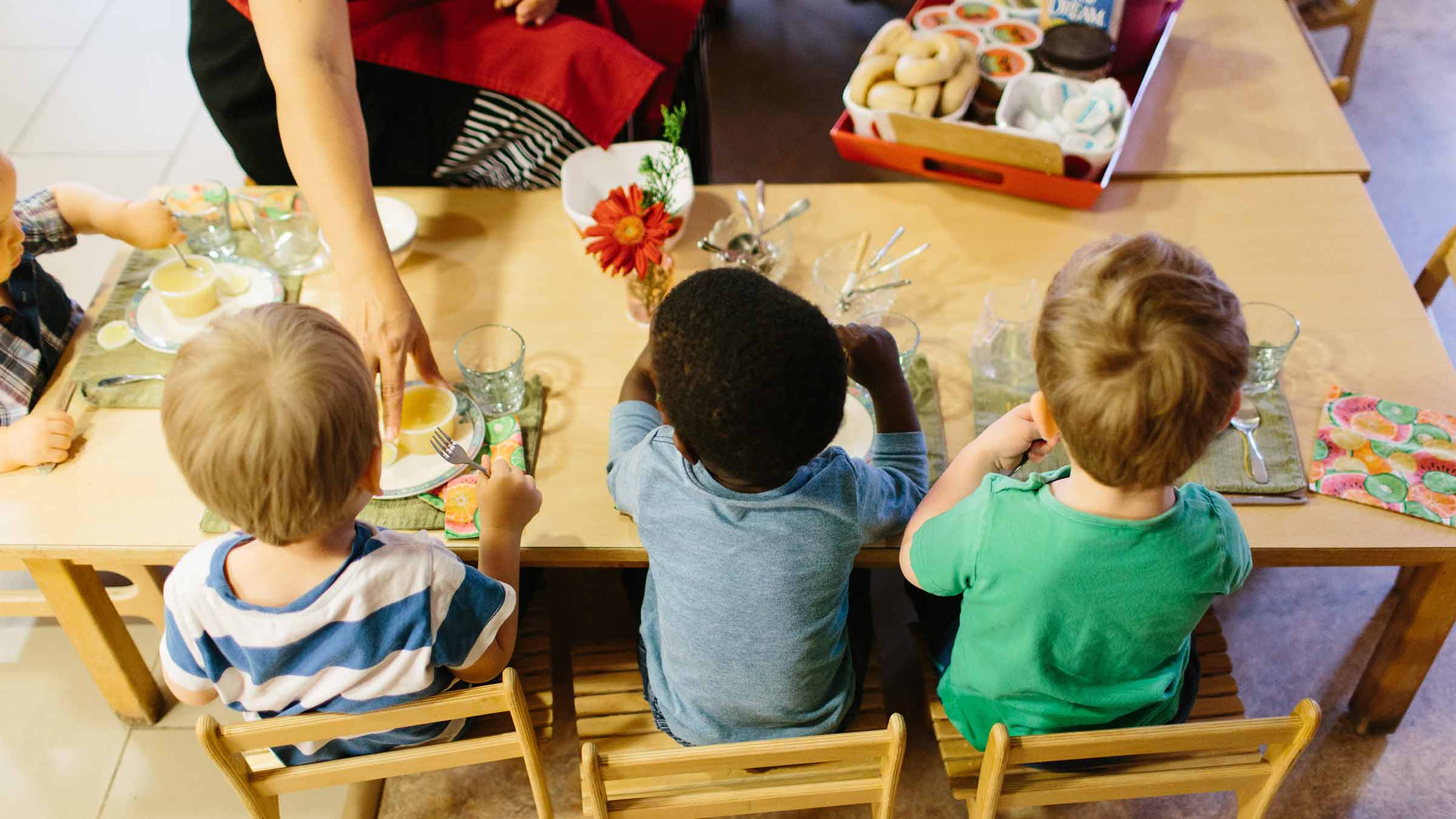
Last month, I had the pleasure of joining over 180 early childhood professionals – from teachers to policymakers – in our first public gathering for 80×3: Resilient from the Start, discussing the future of a trauma-sensitive early childhood workforce in Minnesota.
I have been working in the field of early childhood education for more than 20 years. Never have I witnessed as much energy supporting the field of early childhood care as I see right now. There is an unprecedented opportunity for transformational work that is culturally responsive, prioritizes the well-being of providers and enormously benefits the well-being of children – if we capitalize on this moment. Although hope is on the horizon, children, families and staff need our support now.
Recent studies in the field of childhood brain development have illustrated the wide opportunity gaps that exist in early childhood education and care. Prestigious institutions such as Harvard’s Center for the Developing Child, the Masonic Institute for the Developing Brain at the University of Minnesota and The Stanford Center on Early Childhood have worked to provide the scientific evidence on the importance of the earliest years of life, and what supports are needed to improve the lives of children facing adverse experiences.
Much of this emerging research is already informing the policy space, such as the United States Department of Health and Human Services’ work to create a national Early Childhood Education workforce center, and more locally with the release of recommendations by the Great Start Task Force.
Read more about why childhood brain development matters.
But research and recommendations are not enough. Now is the time to translate these findings into practice – connecting the people who work directly with children with the resources they need, and promoting the widespread adoption of practices that support healthy child development.
80×3: Resilient from the Start aims to unify those who are ready to move beyond the hypothetical toward actionable, healing-centered, engagement driven work. By building bridges between the individuals who work with children and their families, we foster lasting relationships that are meaningful, greatly benefitting their communities, and will only grow stronger over time.
Our virtual gathering of over 180 early childhood changemakers collectively reimagined what an expanded, culturally responsive and trauma-sensitive early childhood workforce could look like.
During the event, I was struck by the comments of Betty Emarita, 80×3 Advisory Member and co-chair of the Minnesota Community Solutions Fund for Healthy Child Development. She said, “[Lawmakers and policymakers] are also parents, grandparents, aunties and uncles – and so in a lot of ways, we can think of this as a shared landscape that we have to figure out how to navigate together. The challenge is how to create effective, meaningful supports and embed them into existing processes.”
Minnesota can move from reports, recommendations and research to action. Governor Walz recently released his One Minnesota Budget, with an aim to make Minnesota the best state in the country for kids.
“This commitment from the governor, along with a growing interest from lawmakers in culturally responsive and trauma-sensitive child care, shows critical alignment with our work here at Greater Twin Cities United Way,” says Susan Carter, Director of Advocacy and External Engagement. “Every day, our organization is addressing community needs and transforming inequitable systems together with community.”
80×3 is uniquely positioned to connect the people dedicated to service in the child development community with the training, coaching and networks necessary to sustain high quality childcare practices – shifting our focus from what we know to what we do.
This year, Greater Twin Cities United Way will deepen its investment in a trauma-sensitive and culturally responsive workforce by funding two additional 80×3 cohorts. This will expand the training, coaching, and networking 80×3 can provide to more child development organizations as well as the organizations providing support to our early childhood workforce.
I think often of a quote I heard at a recent presentation by FamilyWise, a leader in trauma-sensitive care, in which they stated: What is predictable is preventable. With the expertise and enthusiasm I see today, I’m more confident than ever in our sector’s potential to prevent harm and set our children and families on the path to healing.